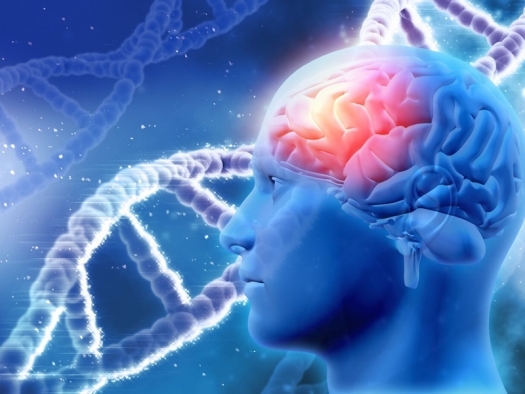BrainLitUpAndDNA.jpg

Illustration by kjpargeter / Freepik
Think brain health only matters once you reach a certain age?
Think again.
The brain also affects:
- Memory
- Concentration
- Stress Response
- Hormone Production
- Gut Health
- Hunger Cues
- Productivity
- Mood
Most people don’t think twice about brain health unless they notice problems with their memory or concentration. But your brain is the control center for everything else in your body! How well your brain functions has a direct and significant effect on your stress response, hormone production, gut health, and hunger cues.
(Not to mention productivity and mood.)
We just cannot separate the body from the brain.
Some of the best ways to protect brain health?
- Deep Breathing
- Good Nutrition
- Movement
- Sleep
Brain Health Facts
60% of the human brain is fat. Sleep removes toxins from the brain. Gut microbes signal the brain & affect behavior.
Let’s break this down.
60% of the human brain is fat.
Ever think about what happens to fats from your diet once you eat them? They become building blocks for things like cellular membranes, nerve cells, and brain matter! That means eating healthy fats is one of the best things you can do for your brain.
Sleep removes toxins from the brain.
The brain actually has a self-cleansing mechanism that creates waves of fluid to clear metabolic waste. These waves are most active during sleep, so you can think of sleep as a form of detox for the brain.
Gut microbes signal the brain and affect behavior.
The gut-brain axis is a two-way communication network between the gut and the brain that is largely influenced by the gut microbiome. Studies have even linked specific probiotics to stress and mood.
This may make you think about the brain in a little different way. Truth is that brain health is about so much more than memory. Brain health depends on our everyday habits and influences our overall health.
If you want
- Mental Clarity
- Better Focus
- Sound Sleep
- Stress Resilience
- Healthy Metabolism
- Good Digestion
- Hormone Balance
Then it’s time to prioritize brain health!
This could change everything. Not enough healthcare practitioners talk about the benefits of brain health (or do anything to support their patients in this area!). Just remember it’s up to your brain to trigger hormone cascades that influence energy, sleep, and stress.
There are also areas of your brain that control hunger cues, metabolism, and digestion. When it comes to health and healing, it’s almost never enough to only address the outward issues. We have to look deeper to see how everything is connected.
Food choices significantly impact brain health
Save this list and check your kitchen!
Healthy brain function depends on a steady supply of essential fats (for nerve cell communication), proteins (for neurotransmitter synthesis), micronutrients (for metabolic pathways), and polyphenols (for antioxidant protection).
Here are science-backed foods to eat and to avoid for a better brain
The Good
- Eggs
- Fatty Fish
- Flax Seeds
- Chia Seeds
- Walnuts
- Olives
- Turmeric
- Green Tea
- Dark Chocolate
- Mushrooms
The Bad
- Trans fats (hydrogenated oils)
- Alcohol
- Sugary Drinks
- Refined Carbohydrates
- Aspartame
Even if you don’t think you have any problems with “brain health,” just remember that your brain is the control center for every other body function – including energy, sleep, stress, hormones, and gut health.
Holistic Health Tips
Want mental clarity? Try the top 5 nutrients to boost your brain.
- Omega-3 Fatty Acids – Fatty acids are the building blocks for nerve cell membranes and important for cell-to-cell communication in the brain. Food sources: fish, nuts, & seeds.
- B Vitamins – B vitamins act as cofactors for energy metabolism, and the brain needs a constant supply of energy to maintain function! Food sources: eggs, meats, nuts, whole grains.
- Choline – Choline is a building block for acetylcholine, a key neurotransmitter related to memory and brain function. Food sources: egg yolks & liver.
- Polyphenols – These colorful compounds in plant foods protect brain cells from oxidative stress and damage. Food sources: berries, chocolate, & green leafy vegetables.
- Probiotics – Probiotics influence brain health through the gut-brain axis, benefiting mood and memory. Food sources: yogurt, kefir, & kombucha.
If you aren’t eating food sources of these nutrients every day, supplementation is an option. Just be sure to purchase them from trusted sources.
One Key Thing
If you only do ONE thing for your health, make it this.
Any guesses?!?
It boosts energy, relieves stress, improves mood, and protects against most chronic illnesses.
It’s something that anyone can do for free.
(okay, you’ve probably got it by now….)
It’s MOVEMENT!
Whether you want to squeeze in some crunches and jumping jacks before work, desk stretches mid-morning, or a walk after lunch, moving your body is one of the best ways to improve and optimize your health.
References
Herman JP, Nawreen N, Smail MA, Cotella EM. Brain mechanisms of HPA axis regulation: neurocircuitry and feedback in context Richard Kvetnansky lecture. Stress. 2020;23(6):617-632.
Mayer EA, Nance K, Chen S. The Gut-Brain Axis. Annu Rev Med. 2022;73:439-453.
Morales I. Brain regulation of hunger and motivation: The case for integrating homeostatic and hedonic concepts and its implications for obesity and addiction. Appetite. 2022;177:106146.
Chang CY, Ke DS, Chen JY. Essential fatty acids and human brain. Acta Neurol Taiwan. 2009;18(4):231-241.
Berding K, Vlckova K, Marx W, et al. Diet and the Microbiota-Gut-Brain Axis: Sowing the Seeds of Good Mental Health. Adv Nutr. 2021;12(4):1239-1285.
Jiang-Xie LF, Drieu A, Bhasiin K, Quintero D, Smirnov I, Kipnis J. Neuronal dynamics direct cerebrospinal fluid perfusion and brain clearance. Nature. 2024;627(8002):157-164.
Beilharz JE, Maniam J, Morris MJ. Diet-Induced Cognitive Deficits: The Role of Fat and Sugar, Potential Mechanisms and Nutritional Interventions. Nutrients. 2015;7(8):6719-6738.
Gómez-Pinilla F. Brain foods: the effects of nutrients on brain function. Nat Rev Neurosci. 2008 Jul;9(7):568-78.
Humphries P, Pretorius E, Naudé H. Direct and indirect cellular effects of aspartame on the brain. Eur J Clin Nutr. 2008;62(4):451-462.
Ansari F, Neshat M, Pourjafar H, Jafari SM, Samakkhah SA, Mirzakhani E. The role of probiotics and prebiotics in modulating of the gut-brain axis. Front Nutr. 2023 Jul 26;10:1173660.
Revised by Joanne Quinn, PhD; content provided by Wellnesswriter.com.


